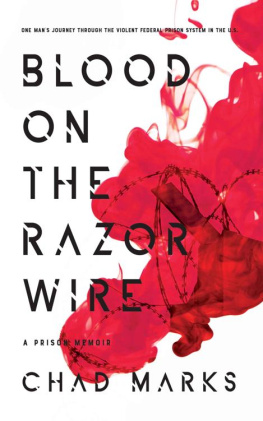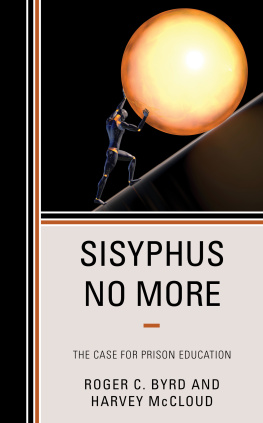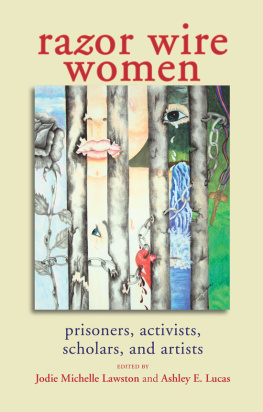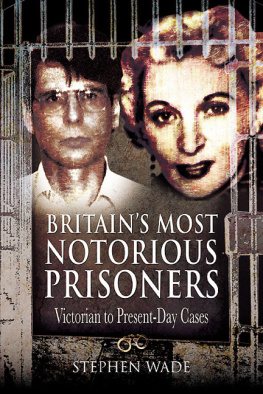HUMMINGBIRD IN UNDERWORLD
Praise for Hummingbird in Underworld
Riveting! Tobola moves between her maverick childhood and outlier life teaching art in prison with the eye of an anthropologist and the pen of a poet. Much more than a memoir.
Sheila Toomey, Pulitzer Prizewinning journalist
... a deeply moving reflection... beautifully wrought.
The Indypendent
... a treasure of a book in multiple ways.
Foreword Reviews
Deborah Tobola is a visionary pioneer in the field of arts in corrections in the United States... Her stunning memoir skillfully weaves her familys story with her professional life experiences, delivering a lucid, up-close, and deeply personal view of bringing art la carte into the belly of the beast...
Curt L. Tofteland, founder of Shakespeare Behind Bars
Deborah Tobola has spent most of the last thirty years in California prisonsmore time inside than the average bank robber. In Hummingbird in Underworld, she takes us on an adventure most people would never imagine... What a joy to read!
Claire Braz-Valentine, poet and playwright
... fascinating... The writing is gorgeous and the voice strong and engaging... the story of one womans faith in others and how that faith brought out the best in some of them.
Readers Favorite
Like a hummingbird, Deborah Tobolas story flutters effortlessly from her bohemian upbringing to her work in prison. It is her poetry, and the poetry of her prison students, that knows no boundaries of geography or language.
Leah Joki, author of Juilliard to Jail and Prison Boxing
... Deborah Tobola writes with lean precision, guiding us through prison like a kind scientist... her passion for the arts is matched by empathy for the imprisoned. I was a student and employee of Ms. Tobolas in 2000. As an aspiring poet and novelist, she is my mentor once again.
Opie, former student
... thats the heart of the story: Underneath her tough exterior, she has a gifted and inspiring teachers idealism and empathy, and she believes that the arts can save ones soul and free ones mind, a valuable gift when ones body is locked up for years, even decades.
Read Her Like An Open Book
Deborah Tobola weaves together personal and career events with strong, varied and colorful threads. With humor, heart, and hope, this author offers a lighthouse of inspiration for leaders everywhere.
Bonnie Young, San Luis Obispo County
Poet Laureate, 20112012
... memorable, enlightening, and disarming.
TarHeel Reader
In her fearless flight inside and outside the bars of prison, Tobola shows us that the emergency is beauty in harsh places.
J. H. Nuez, poet

Copyright 2019 by Deborah Tobola
All rights reserved. No part of this publication may be reproduced, distributed, or transmitted in any form or by any means, including photocopying, recording, digital scanning, or other electronic or mechanical methods, without the prior written permission of the publisher, except in the case of brief quotations embodied in critical reviews and certain other noncommercial uses permitted by copyright law. For permission requests, please address She Writes Press.
Published July 2019
Printed in the United States of America
Print ISBN: 978-1-63152-505-6
E-ISBN: 978-1-63152-506-3
Library of Congress Control Number: 2019931881
For information, address:
She Writes Press
1569 Solano Ave #546
Berkeley, CA 94707
She Writes Press is a division of SparkPoint Studio, LLC.
Names and identifying characteristics have been changed to protect the privacy of certain individuals.
In memory of my father, Charles,
and in honor of my mother, Joanne,
and for my tribe
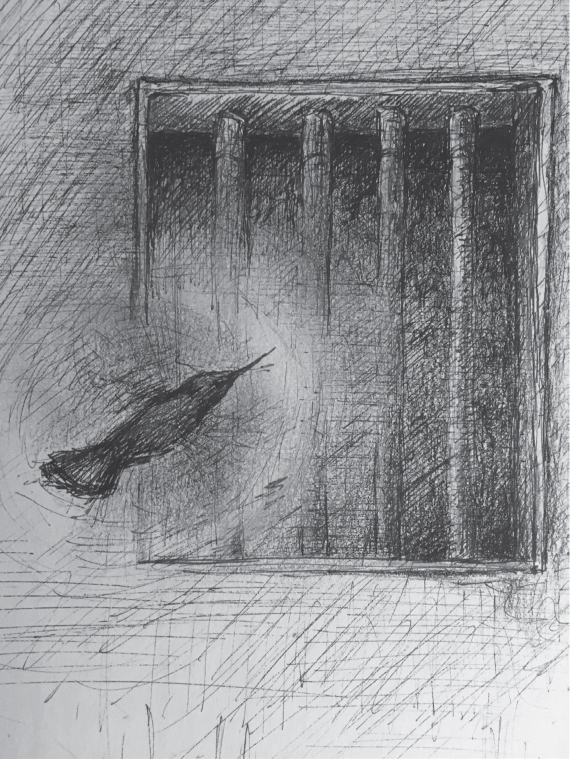
CONTENTS
I
THE JOINT
I s it memory or imagination, the clink of silverware, the smiling man dressed in blue, serving us food? The prison cafeteria offered cheap meals for staff and their family members, so my father decided to bring my mother, my sister Bonnie, and me to try it out. This was my first meal away from home, and Bonnies too. I was three and Bonnie was two. I dont know if it was the food, the atmosphere, or the novelty of eating in a place with white tablecloths, but my parents told me later that I said, Daddy, I like eating at the Joint!
My parents met in 1954, when they were both driving convertibles, going opposite directions on Liberty Boulevard in Huntington Park, a suburb of Los Angeles. At the stoplight, my father took one look at my mother, the breeze whispering through her long dark hair, and was enchanted. Shes told me since then that she was wearing a floral print halter dress. Her mother had loaned her the Plymouth convertible so she could go to a bon voyage party for a man she worked with who had joined the Navy.
My father followed her home, parked his Pontiac convertible across the street from her house, and called out to her until she agreed to have coffee with him. They went to the Clock, a drive-in restaurant on nearby Long Beach Boulevard, famous for the Chubby Champ double-decker hamburger, which cost forty-five cents then. (Fries were another fifteen.) They didnt sit in his convertible and wait for a car hop, but went inside and ordered coffee. They sat there all night, drinking coffee and talking. By sunrise, they were in love.
When she got home, my mother had to sneak into the house and gingerly slide into bed next to her mother, praying that she wouldnt awaken. My mother and my grandmother, Nonny, shared a two-bedroom house with a friend of Nonnys, so my mother and Nonny shared a bed. I imagine that Nonny was not really asleep. She must have known there was a man in this equation. Her daughter was a good girl, not the kind who would worry her mother by coming home at the crack of dawn.
And my mother felt guilty for her indiscretionas heady as it wasbecause when she told Nonny about my father, she couldnt say how she met him. Instead she said that he was a patient of the dentist she worked for. And at first, Nonny didnt approve of Dad. Her Swedish family had immigrated when Nonny was two, arriving at Ellis Island and moving to Massachusetts. She grew up near Boston and was accustomed to East Coast city people, who were more refined than my father, a ranch boy from a desert town in California.
My father had escaped a life of manual labor when he left the ranch to enlist in the Marine Corps in 1950, earning a Purple Heart and a Bronze Star. One letter he wrote home from somewhere in Korea ended up on the front page of his hometown paper, the Antelope Valley Ledger-Gazette, with the editors note: The Marine has put into words thoughts which have probably gone through the minds of many other American boys serving their country overseas.
The letter to Grandma ends with, Perhaps the most important thing of all, let them see how the people of a country like this live. They beg for the C rations we cant stand. Their homes are made of mud and grass and crawl with bugs. They are puny and stink from filth. It wouldnt hurt our younger generation to see the crud and corruption and then appreciate the soft life they have been living. Well, Mom, I guess I had better stop this or Ill be drafting grammar school kids. My father was twenty when he wrote this letter, a member of the younger generation himself.
After he returned home, he enrolled in Antelope Valley College on the GI Bill and played football there. Thats what he was doing when my mother met him. They made a striking couple. My mother resembled an actress of the time, Debra Paget, best known for her roles in
Next page

